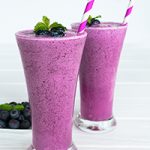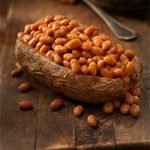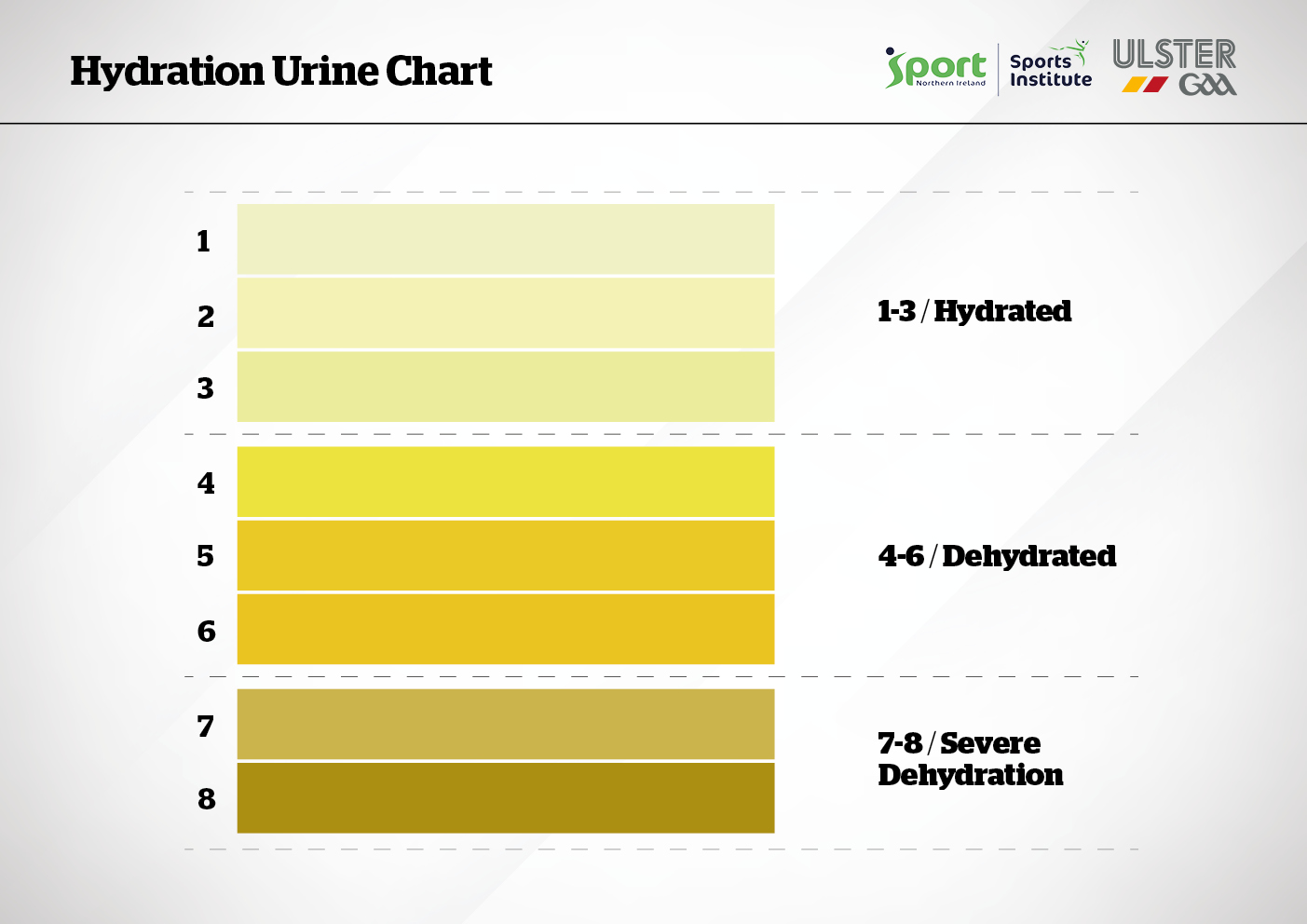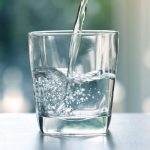Training and match nutrition
What and when you eat around training sessions and matches will have a big impact on how well you perform and how quickly your body recovers between exercise bouts.
Pre-match meal
This should be eaten 2-3 hours before exercise and should contain a source of carbohydrates and protein to help top up fuel levels in the body and feed your muscles. Avoid eating unfamiliar foods or too much as this may cause stomach discomfort during the training session or match.
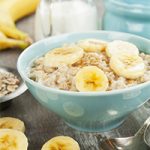
Pre-exercise meal ideas
- Porridge made with milk and chopped banana
- Cereal with milk, a piece of fruit and yoghurt
- Toast with cheese, sliced tomato and glass of milk
- Baked beans on toast with fruit and glass of milk
- Spaghetti Bolognese
- Scrambled egg and wholegrain toast with a piece of fruit and yoghurt
- Sandwich with lean meat / fish/ cheese and salad
A high carbohydrate snack should be eaten around 30 minutes before exercise to help top up energy levels.
High Carbohydrate Snacks
- Bread roll with banana
- Small glass of homemade smoothie e.g. milk blended with yogurt and mixed fruit
- Cereal bar and yogurt
- Handful of dried fruits and nuts
- Jam or honey sandwich with a piece of fruit
During Exercise
It is not necessary to eat anything or drink sports drinks during shorter duration, low intensity training sessions – water is fine to help maintain hydration. During high intensity sessions or sessions lasting more than 1.5 hours, energy may need to be replaced to keep players running further and faster and also help maintain skills and judgement when players would otherwise become tired. Sipping on homemade sports drinks is ideal as it hydrates the body and replaces energy at the same time.
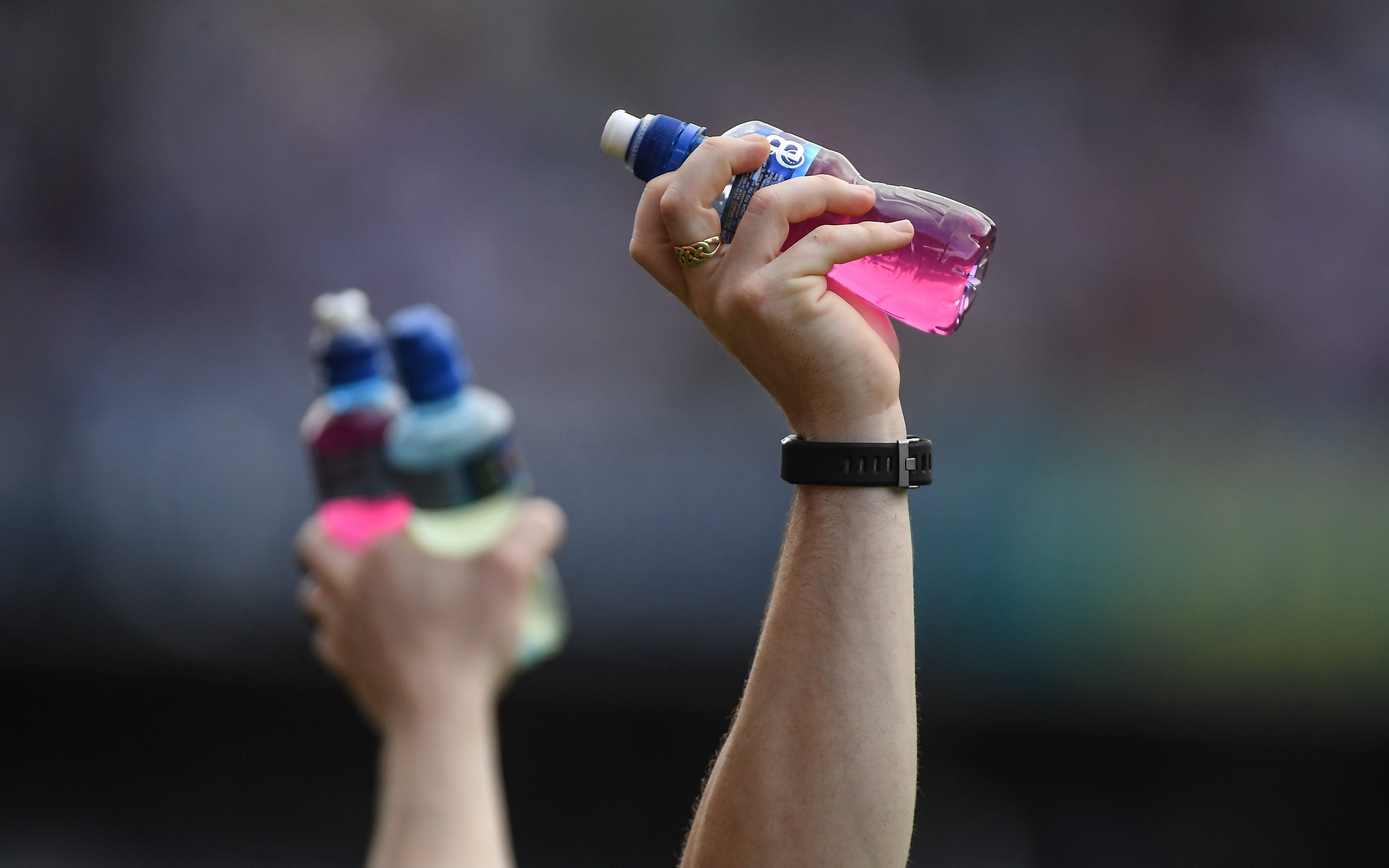
Post-exercise Recovery
Recovery after each training session or match is essential to help refuel and rehydrate the body and repair damaged muscles. This is particularly true when players are required to train or play on consecutive days. Recovery snack and fluid should be:
- Started within 30 minutes of finishing exercise – when the body takes up carbohydrates at a faster rate.
- High in carbohydrate (min of 50g) and protein (15g) – to help replace glycogen stores (energy) in the muscles and repair muscles.
- Quick and easy to prepare and eat.
Recovery Options
- Homemade recovery shake
- Sandwich, roll or wrap with protein filling e.g. chicken, tuna, cheese or egg with salad
- Low fat yoghurt with a handful of dried fruit / nuts
- Large baked potato and ½ tin of beans & glass of milk
- Scrambled egg (2 eggs) and 2 slices of wholemeal toast
- Pasta and chicken with tomato-based sauce
- Chilli and rice
- 2 slices of toast with cheese (40g) with piece of fruit
- Large bowl (2 cups) of cereal with milk
Hydration
During training and games, players naturally generate heat leading to a rise in body temperature. A rise in body temperature can be both detrimental to performance but also continue to fatigue. Our bodies attempt to compensate for this by sweating.
When players do not consume enough fluids during training and games to compensate for these sweat losses, dehydration can quickly occur.

A loss as low as 2% of body weight has been shown to affect performance – in a 13.5 stone player, 2% is as little as 3.75 lbs. This may not sound much but in a single training session or game a player can easily lose up to 4% of their body weight.
Many players do not deal adequately with dehydration and in fact, never fully rehydrate after training or a game. This leads to players taking part in further training sessions or games already in a dehydrated state exposing themselves to a greater risk of injury.
In response to dehydration, you will feel thirsty, however, thirst is not a good indication of dehydration. By the time you feel thirsty you are already dehydrated.
Establishing Hydration Status
Knowing how much fluids have been lost is important in rehydrating the body. There are a number of easy ways of monitoring hydration levels. Using these in combination will give a simple and accurate method of monitoring hydration status.
- Weigh players before and after training and games. Wearing as little clothing as possible – the difference will be weight lost due to sweating
- Use a urine colour chart to monitor the colour of your urine. Generally, the darker the urine, and the less you urinate, the more dehydrated you are.
- Thirst – the absence of thirst does not mean that you are not dehydrated. However, if you are already thirsty then you are already dehydrated and need to drink some fluids.
Rehydrating
For each kg of weight lost through sweat – replace with 1.5 litres of fluids.
Along with water, electrolytes are also lost through sweat – water alone will not replace these electrolytes. Sports drinks are a good option as they contain both carbohydrate and electrolytes. See homemade sports drink options.
Combating dehydration tips
- Monitor hydrating on an ongoing basis
- Aim to drink 2 litres of fluid each day as part of your regular routine
- Drink additional fluids before, during and after training and games.
- Aim to drink 200ml-500ml of fluid 2 hours prior to training or games – remember many players begin training already dehydrated
- Try to sip 125-250ml every 15-20mins of exercise to top up fluid levels
- Begin to replace and fluid lost during training or games immediately afterwards by consuming at least 500ml of fluids
- The presence of sodium and potassium will aid rehydration
- Where possible also include a source of protein with your drink
- To completely rehydrate, consume 150% of the amount of fluids lost – for each 1kg lost, consume 1.5 litres of fluids.
- Avoid alcohol and caffeine drinks until you have completely rehydrated as these increase urine output.
Section Downloads
Interested in finding out more?
Do you have a question about any of the resources within the PALs Microsite? Or would you like to speak to a member of our team?



